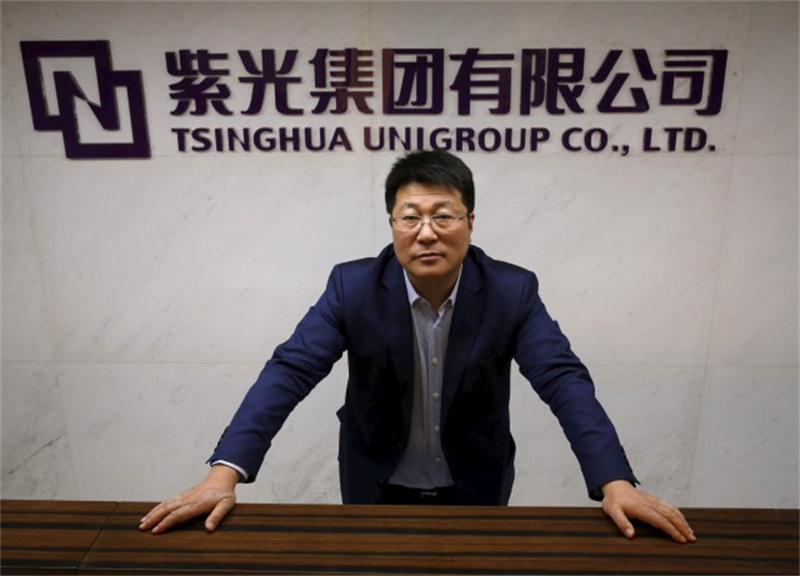Zhao Weiguo, former chairman of Chinese chip conglomerate Tsinghua Unigroup, has been handed a suspended death sentence for corruption and embezzlement, marking one of the most high-profile anti-graft rulings in China's semiconductor sector.
On May 14, the Intermediate People's Court in Jilin announced that Zhao was convicted of multiple charges including embezzlement, abuse of power for personal gain, and harming the interests of a listed company. He was sentenced to death with a two-year reprieve—typically commuted to life imprisonment—along with lifetime deprivation of political rights and confiscation of all personal assets. Authorities confirmed that Zhao had returned all illicit gains.
Zhao's fall marks a stunning collapse for a once-celebrated tech magnate who led Tsinghua Unigroup's rapid rise into a state-backed semiconductor empire. Under his leadership, the company made a series of aggressive acquisitions, including the $162 billion privatization of Spreadtrum and RDA Microelectronics in 2013, and the $25 billion purchase of H3C in 2015. By 2016, Zhao spearheaded the launch of memory chipmaker YMTC to compete with global giants like Samsung.

At its peak, Unigroup's assets surged to nearly RMB 300 billion ($42 billion), and Zhao's personal wealth reportedly reached RMB 34 billion ($4.7 billion), earning him the nickname “Chip Madman.” However, the expansion was built on shaky financials and questionable governance. By 2020, the group defaulted on $198 million in bonds, and its debt ballooned past RMB 200 billion, leading to bankruptcy restructuring in 2021. Zhao stepped down shortly after.
According to court findings, Zhao misused his position from 2014 to 2021 to transfer lucrative business opportunities to companies controlled by close associate Li Luyuan. This included selling commercial properties at undervalued prices, outsourcing profitable services at inflated rates, and leasing corporate assets at below-market terms. These schemes resulted in over RMB 1.36 billion (about $190 million) in direct economic losses to the state and listed companies.
Investigators say Zhao used three key tactics to divert public assets for private gain: manipulating real estate transactions worth RMB 470 million, funneling RMB 890 million in business to affiliates, and leasing assets below value, causing losses of RMB 46 million.
Zhao was detained in 2022 and went on trial in September 2023. He reportedly confessed, showed remorse, and cooperated with the authorities, which contributed to the suspended execution.
Tsinghua Unigroup was originally founded in 1988 out of Tsinghua University and became a centerpiece of China's “Made in China 2025” semiconductor push. In July 2024, it rebranded as “New Tsinghua Unigroup” and vowed to move forward under new leadership.
Zhao, a graduate of Tsinghua's renowned EE85 class—an incubator of China's semiconductor talent—was once seen as a symbol of national tech ambition. His downfall is now being cited in Chinese media as a cautionary tale in the ongoing anti-corruption drive.
+86 191 9627 2716
+86 181 7379 0595
8:30 a.m. to 5:30 p.m., Monday to Friday
